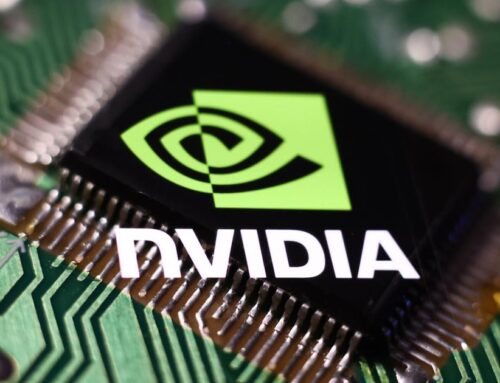Hot tech stock ETFs, from AI to quantum computing, have made investors lots of money. Is i
November 14, 2025
Artificial intelligence has become one of the biggest investment stories in the market, helping drive a surge of assets into thematic exchange-traded funds that let retail investors bet on major technology trends. But experts warn that these funds can fall as quickly as they rise. It’s a simple yet important point for investors to keep in mind as tech stocks look more vulnerable, and are leading the market lower in recent days. The Nasdaq
“We have nearly 400 ETFs at ETF Action that we classify as thematic,” Mike Akins, founding partner at research firm ETF Action, said on CNBC’s “ETF Edge” on Monday. “The top performer is up over 150% year to date … there’s several negative 10%,” he said.
Investors are drawn to thematic ETFs covering trends from AI to quantum computing, clean energy and defense technology, but they often overlook the risks, including how volatile the portfolios can be. Because thematic ETFs focus on specific sectors or technologies rather than just tracking broad indexes, they can deliver strong gains when a theme is in favor, but momentum may fade.
ETF Action divides the thematic ETF universe into 12 major categories with many subgroups. Within the disruptive technology category alone, which includes artificial intelligence, flows have been enormous this year. “AI disruptive tech has seen almost $20 billion in flows year to date,” Akins said. Roughly $15 billion of that, he said, has “AI” in the ETF name.
The surge has helped lift funds like the Global X Artificial Intelligence & Technology ETF (AIQ) which has grown to about $7 billion in assets, attracting about $3 billion in net flows since the beginning of the year, according to ETF.com. Its top holdings are Advanced Micro DevicesAlphabetTeslaAlibabaRobotics & Artificial Intelligence ETF (BOTZ)NvidiaIntuitive SurgicalKeyence
Thematic ETFs do require more research than traditional funds. Case in point: among the 18 ETFs that ETF Action classifies as AI-focused, Akins said there is a performance spread of 60% this year.
“Every time you see a new ETF come to market, it introduces significant tracking error from just investing in the market,” he said.
Through the first nine months of 2025, close to 800 ETFs were launched, besting a record for ETF launches set just last year, according to Reuters. Morningstar data indicates there are now more ETFs (over 4,300 U.S. listed ETFs) than individual stocks traded in the U.S.
Akins described the growth of the ETF market as “overwhelmingly positive” to the investor experience, but added that the growing number of opportunities also implies more risk.
Some of the themes that led the early wave of thematic investing can lose momentum as stand-alone investment stories even as the trends remain fundamental to the technology sector and market, Akins said. ETFs constructed around the themes of cloud computing and next-generation connectivity, for example, have seen billions of dollars in outflows over the past few years as the companies that were top holdings matured and became part of broad-based stock market indexes already held by investors. But he added that the timeline for each trend’s momentum is hard to pin down.
“I think every theme is unique to itself, so some are going to play out longer than others,” Akins said. “That’s part of the story with this space … there’s definitely the idea I’m going to invest in this because I believe it’s going to play out over the next three to seven years.”
Despite the recent jitters in the stock market and tech stocks specifically, it is important to note that the Nasdaq is less than 5% off an all-time record level and has gained close to 250% since its Covid low point. Akins said thematic investing is worthwhile for investors who understand what they are buying and can tolerate short-term volatility.
Seizing moments of opportunity in the market can also be key with thematic strategies. “Themes can run very, very quickly, so you should be taking advantage,” Akins said. Significant gains in a short period of time may lead investors to consider taking some profits. “You still want to have an allocation to the theme, but maybe take some off the top,” he added.
Top 10 disruptive tech ETFs
First Trust Nasdaq Cybersecurity (CIBR
iShares AI Innovation and Technology (BAI)
Assets: $7.6 billion
Expense ratio: 0.68%
YTD performance: 30.5%
Global X Artificial Intelligence & Technology ETF (AIQ)
Assets: $7.2 billion
Expense ratio: 0.68%
YTD performance: 33.6%
Roundhill Magnificent Seven (MAGS)
Assets: $4 billion
Expense ratio: 0.29%
YTD performance: 22.2%
First Trust Cloud Computing (SKYY
Defiance Quantum ETF (QTUM)
Assets: $3.2 billion
Expense ratio: 0.40%
YTD performance: 37%
JPMorgan U.S. Tech Leaders (JTEK)
Assets: $3.1 billion
Expense ratio: 0.65%
YTD performance: 22.8%
Amplify Cybersecurity (HACK
ARK Next Generation Internet (ARKW
Roundhill Generative AI & Technology (CHAT)
Assets: $1.1 billion
Expense ratio: 0.75%
YTD performance: 55%
Source: ETFAction.com
Search
RECENT PRESS RELEASES
Related Post



